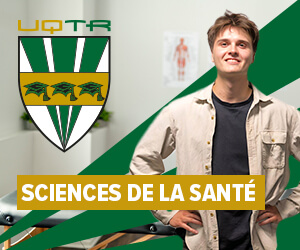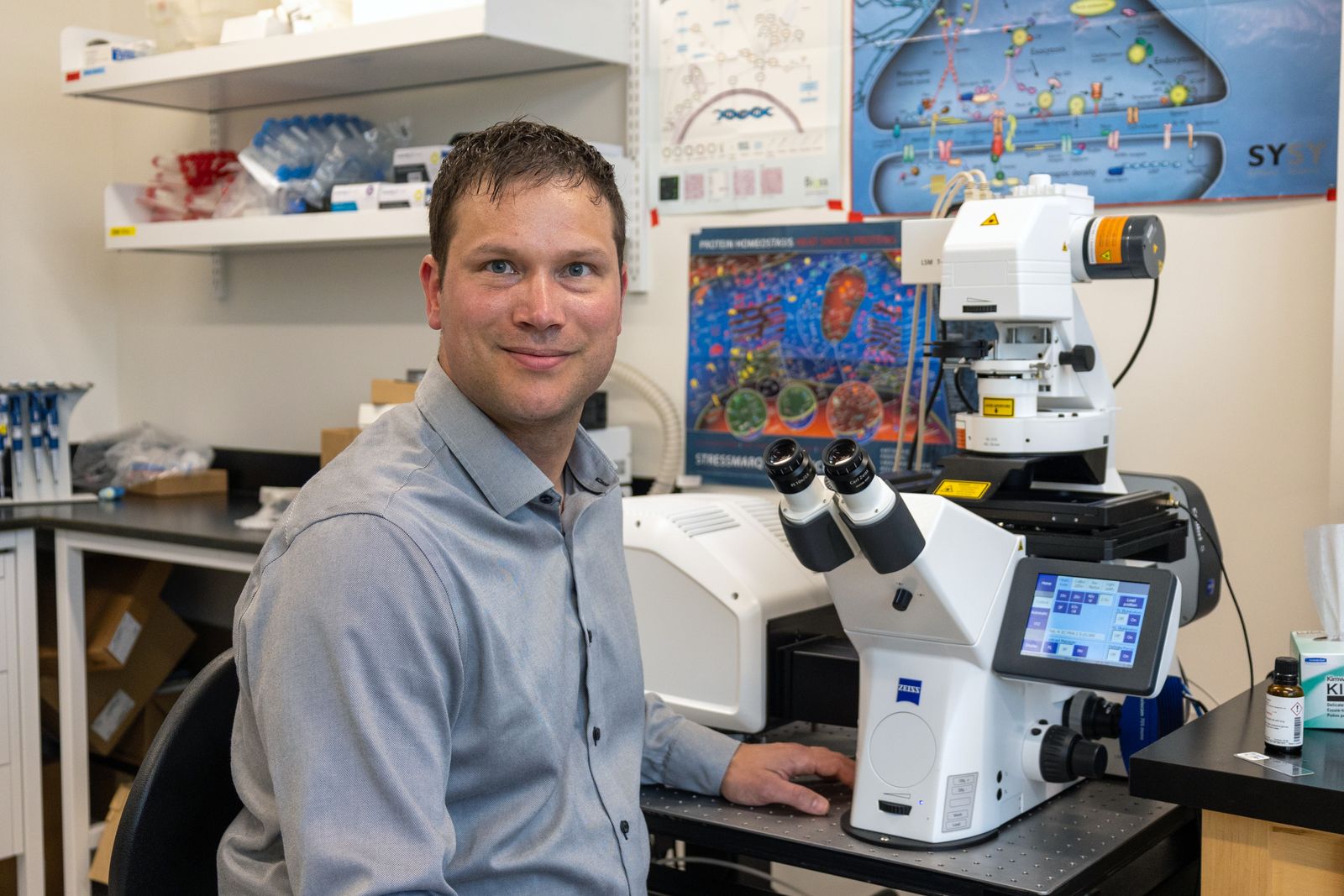
Most adults will experience loss of muscle mass and strength over the course of their lives, a common problem that has a negative impact on health and longevity. For example, muscular dystrophy, the gradual loss of muscle mass associated with aging, significantly increases the risk of falls, fractures, and loss of independence in older adults. Additionally, conditions such as muscle atrophy due to inactivity or chronic disease can lead to decreased quality of life and increased rates of disease.
“My team wants to better understand the biological factors with the aim of slowing down the harmful processes that lead to the loss of muscle function associated with aging, but also with other pathophysiological conditions; we are thinking of patients who are intubated in intensive care and who may develop problems with their diaphragm, the muscle that allows us to breathe,” says Jean-Philippe Leduc-Joudé, professor in the Department of Medical Biology at the University of Quebec in Trois-Rivières (UQTR).
Professor Leduc-Gaudet's student team. From left to right: Zachary Berube Gauthier (BSc in Medical Biology), Suzanne Marie Pierre-Inna Lamizana (BSc in Medical Biology), Anthony Capobianco (BSc in Biochemistry and Biotechnology) and Justin Deshayes (BSc in Medical Biology).
For this young researcher who has won 2024 Banting Foundation Discovery AwardDeciphering the cellular and molecular mechanisms causing muscle degeneration becomes a critical priority in order to maintain the health and quality of life of people who are elderly or affected by various disease conditions.
Understanding Muscle Health
Professor Leduc-Joudy is particularly interested in autophagy, a process that allows cells to break down and recycle their components, such as damaged proteins, dysfunctional organelles, and cellular waste.
Autophagy is involved in many physiological and pathological processes in response to stress. For example, it plays an important role in maintaining muscle homeostasis—the ability of muscles to maintain optimal performance—during physical exercise. Autophagy dysfunctions are associated with a wide range of clinical conditions, including cancer, neurodegenerative diseases, muscular dystrophy, sepsis, multiple sclerosis, and aging.
“We can compare autophagy to a recycling system. This takes care of damaged or excess cellular components and recycles them; if the system is altered even slightly, the waste – protein aggregates and dysfunctional organelles – is not recycled and accumulates in the cell. This generates a variety of events that are detrimental to cellular and muscle health. In this sense, we believe that it is necessary to intervene in autophagy to maintain the balance of cellular homeostasis.
The growing interest of the scientific community in understanding the cellular and molecular mechanisms of autophagy is due to its impact on longevity and healthy aging. From this perspective, Jean-Philippe Leduc-Joudé specializes in the discovery of previously unknown genes that promote the maintenance of homeostasis in the muscular system.
 Two promising genes
Two promising genes
The researcher and his team would like to propose new therapeutic targets that would make it possible to intervene in the autophagy process, and thus prevent or reverse the loss of muscle mass. “For example, if the autophagy process is not sufficiently activated, in other words the recycling system is defective, can we intervene in a balanced way, without generating excessive degradation of healthy cellular components? I think so,” says Mr. Leduc-Joudy, who won this year’s Biomedical Publication Prize from Neuromuscular Disease Network of Canada (NMD4C) About his article published in the scientific journal Nature Communications In 2023.
Under the magnifying glass are currently two genes that, through their interaction, play a role in muscle health. These two genes, MYTHO (total autophagy and enhancer of youth) and BCAS3 (breast cancer amplified sequence 3), regulate autophagy and are key players, among other things, in stimulating the cell membrane to recycle dysfunctional cellular components.
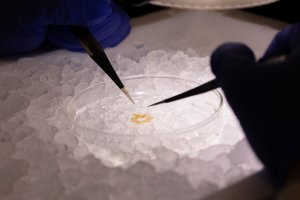
Fiber isolation from the diaphragm to study mitochondrial respiration using the permeable fiber technique.
MYTHO interacts with BCAS3, a master protein regulator that initiates autophagy, creating a “recycling bag” within the cell to capture dysfunctional components and transport them to lysosomes for degradation. Fusion of the autophagosome with the lysosome, a highly acidic organelle that degrades protein complexes, drives autophagy.
Thus, he demonstrated the role of MYTHO, a gene he discovered himself, in regulating autophagy. “We have revealed that low expression of MYTHO is associated with the severity of patients with muscular dystrophy type 1 (DM1), a neuromuscular disease. “We believe that it also acts in other diseases, but the fact that it has not been studied before requires us to push our investigations even further,” concludes Jean-Philippe Leduc-Joudé, explaining that his team uses experimental strategies that combine genetic, molecular, cellular and physiological approaches to study the signaling pathways that regulate muscle mass and function.

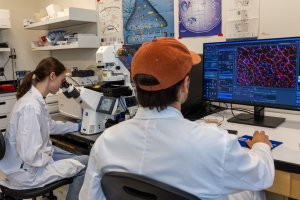
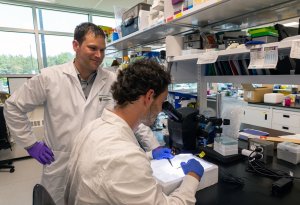 Two promising genes
Two promising genes